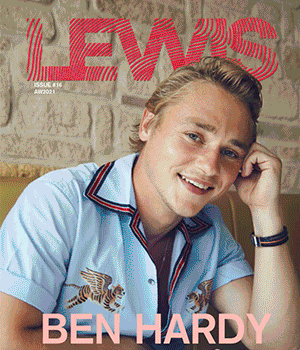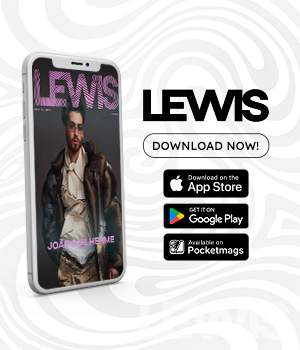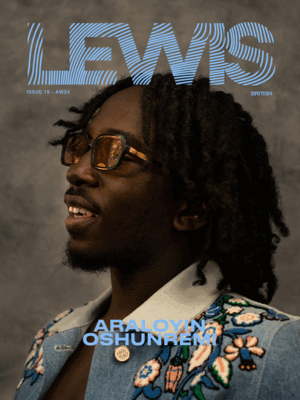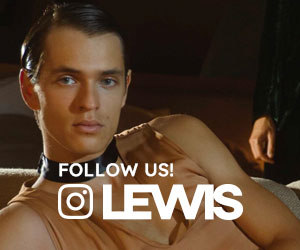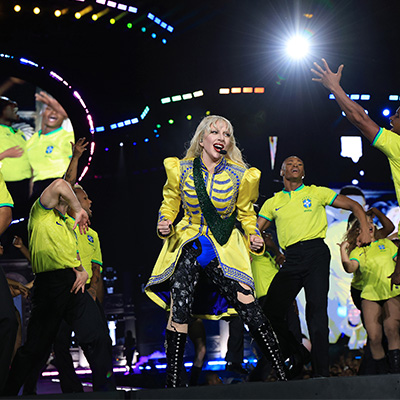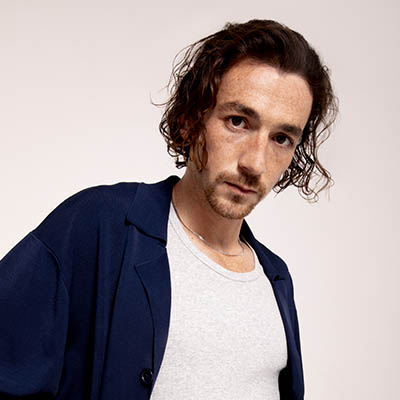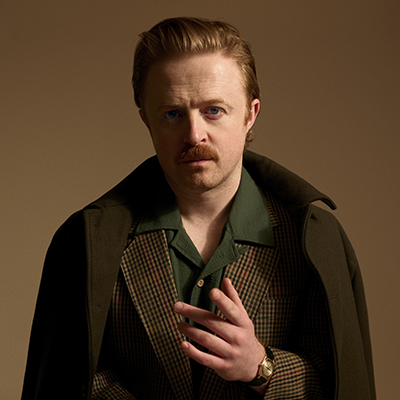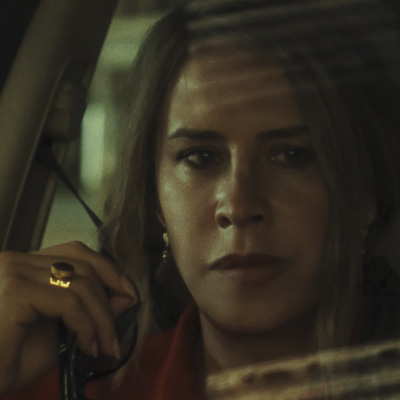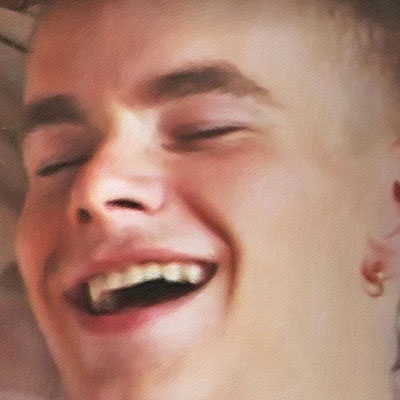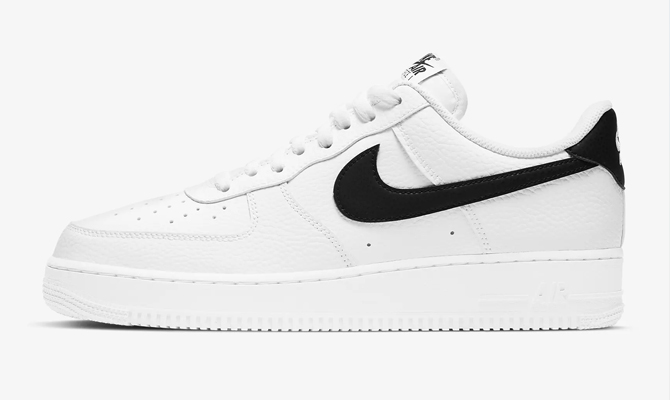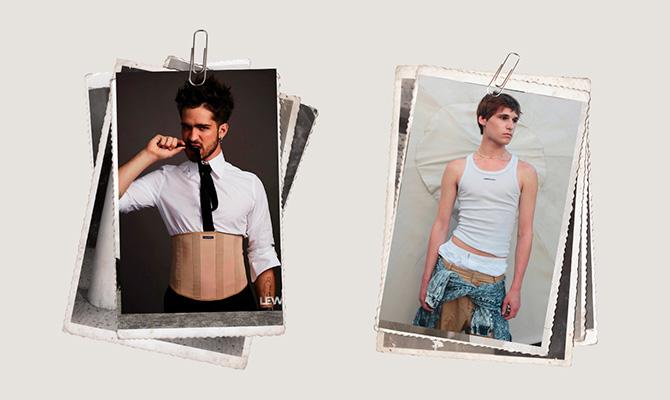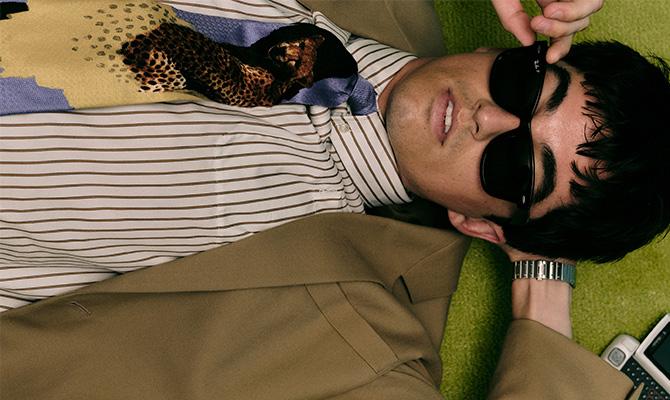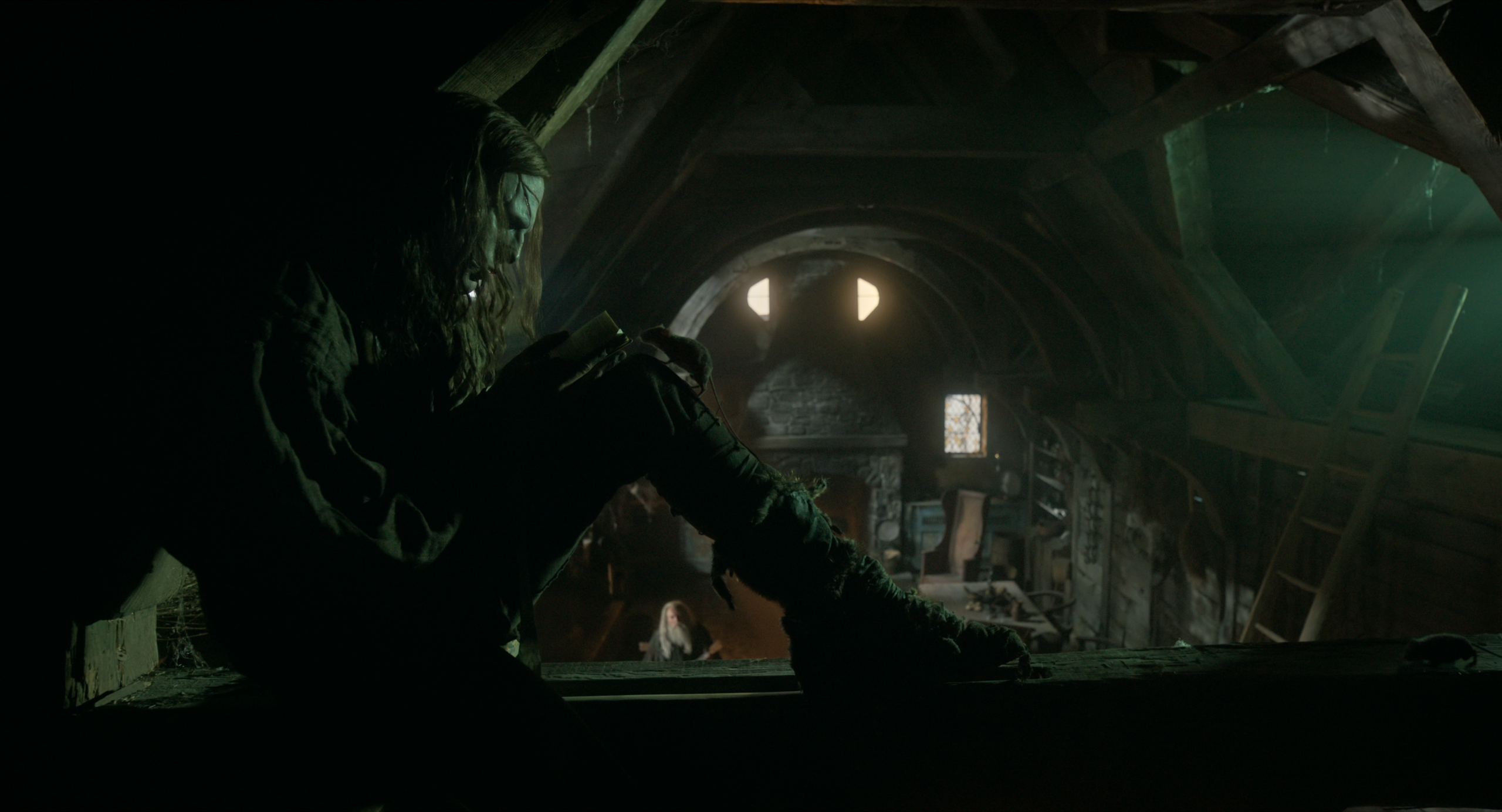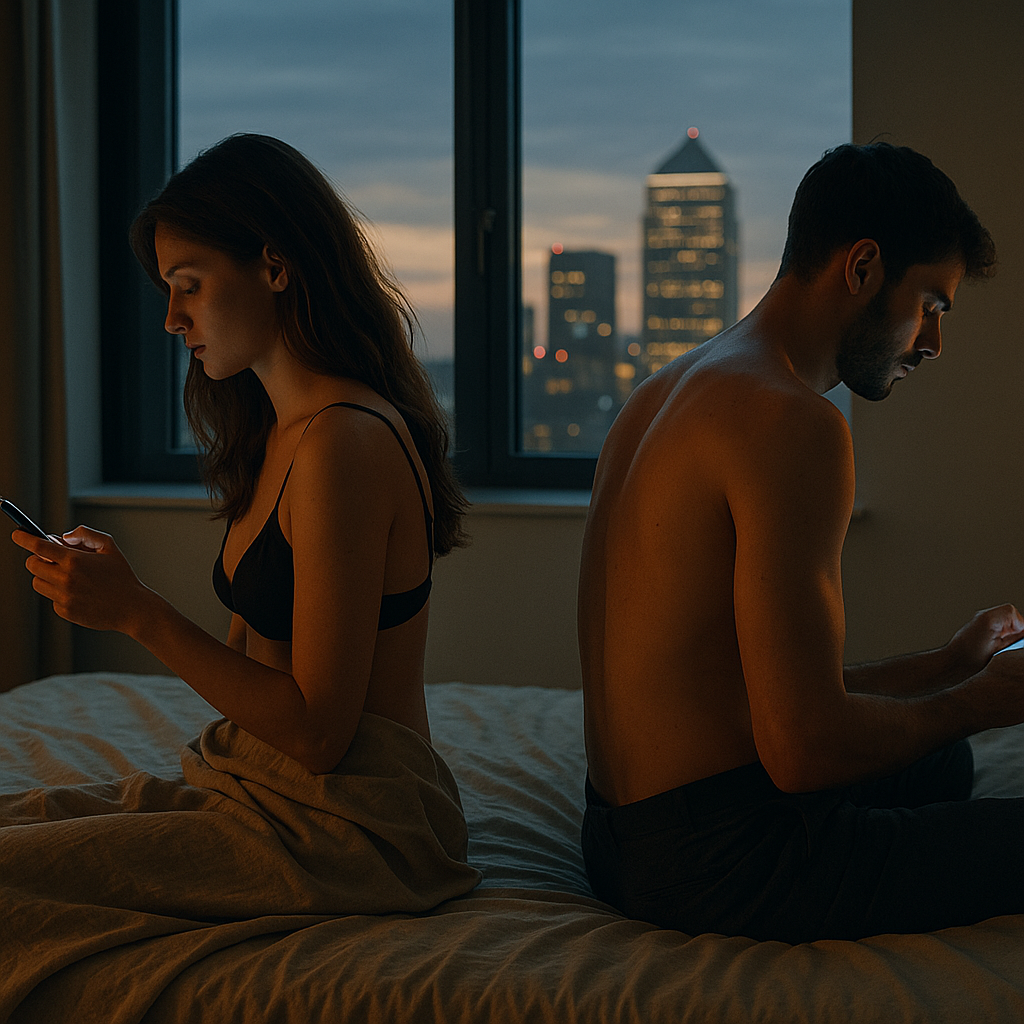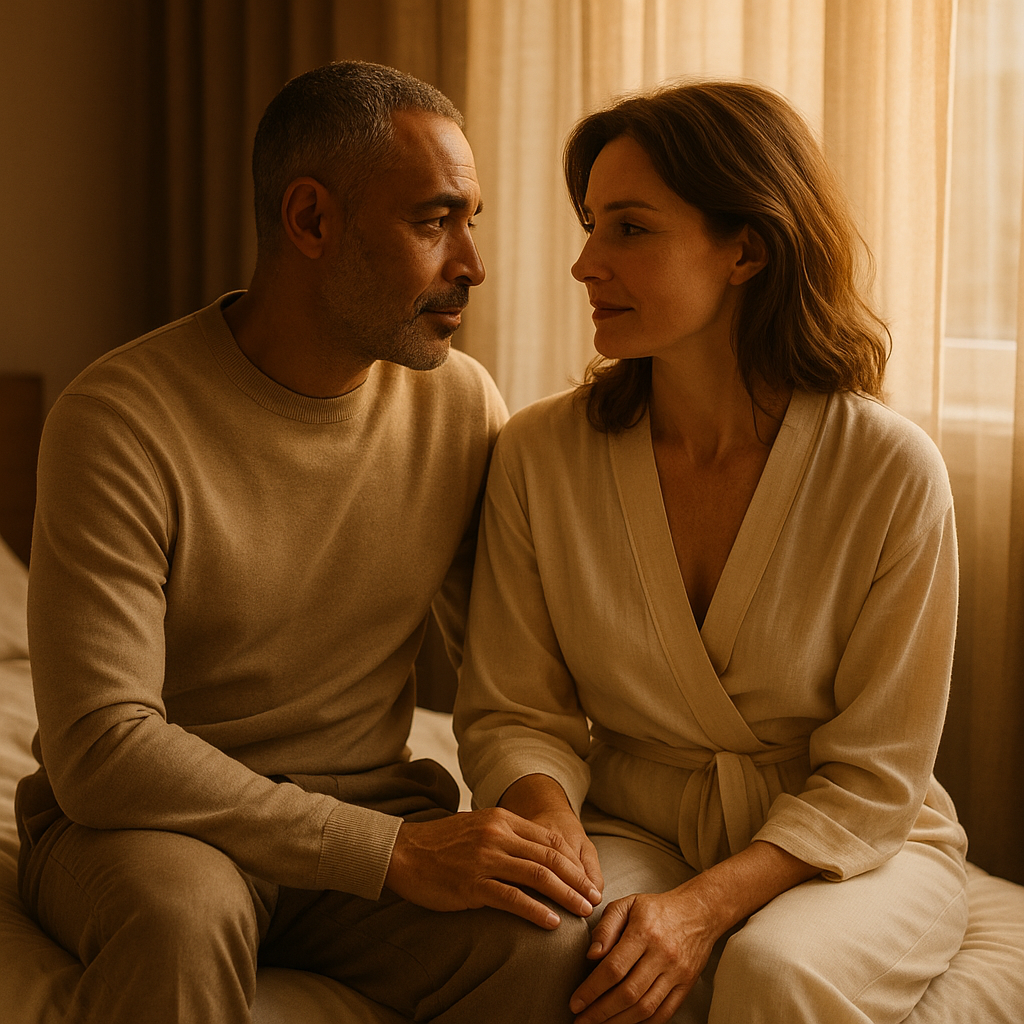After more than a decade of playing the charmingly offbeat DI Humphrey Goodman, Kris Marshall is stepping back into familiar shoes for Season 3 of Beyond Paradise. In this exclusive interview, the actor reflects on the evolution of his character since Death in Paradise, what makes the spin-off such a heartwarming success, and why he believes the show continues to resonate with audiences of all ages. From behind-the-scenes tales to theatre reflections and career highs, Kris gives us a candid look into the journey of a detective—and a performer—who’s still uncovering new layers, both on and off screen.
1. You’re stepping back into the role of DI Humphrey Goodman for Beyond Paradise Season, how has the character evolved since Death in Paradise, and what can audiences expect from this new season?
It’s a new experience for me to have had the opportunity to create and sustain a character for over 10 years, as until now in my career I’ve never played a character for more than 3 seasons. Y’know and that’s always(fortunately!) been a choice. So there’s a challenge to evolve him in a way that’s interesting to both me and audiences, whilst acknowledging the immutability of getting older. Obviously, some of that is in the writing and its corresponding subject matter, but I’m constantly tweaking and working with the writers to hone his actions, reactions and quirks to maintain the truthfulness and foundation of this. At the beginning of Death in Paradise, he was adventurous, clumsy and slightly rudderless, whereas 10 years down the road he’s more rounded and grounded, but still with that youthful exuberance and openness that makes him such an outlier. Hopefully, audiences can expect to see this evolution continue in Season 3, but with the unique touches that makes the show so fun.
2. The show strikes a balance between mystery, humor, and heartfelt storytelling. What do you think makes Beyond Paradise such a special series, and why do you think audiences have connected so deeply with it?
There was no point in creating a carbon copy of Death in Paradise but set in Devon. I’m not sure it would’ve worked and I wasn’t particularly interested in doing that either. So, as is the incentive of any spin-off, it had to retain the appeal of the original whilst being an entirely new endeavour. But I think its real strength is its sense of fun. There’s a glut of brilliant and bloody, dark and gritty detective shows out there, but Beyond Paradise harks back to that wonderful ‘the game is afoot’ genre, with nods to Columbo, Poirot and Marple. The puzzle, the unpicking of the mystery and the humour, added to a wonderful backdrop and a banging soundtrack, plus the fact that it’s heartfelt and yet doesn’t take itself too seriously, means that it’s cross demographic. It’s one of my happiest occurrences when people come up to me and tell me how they’ve bonded with their families over it. It’s something you can watch with your kids, your parents and even the dog!…
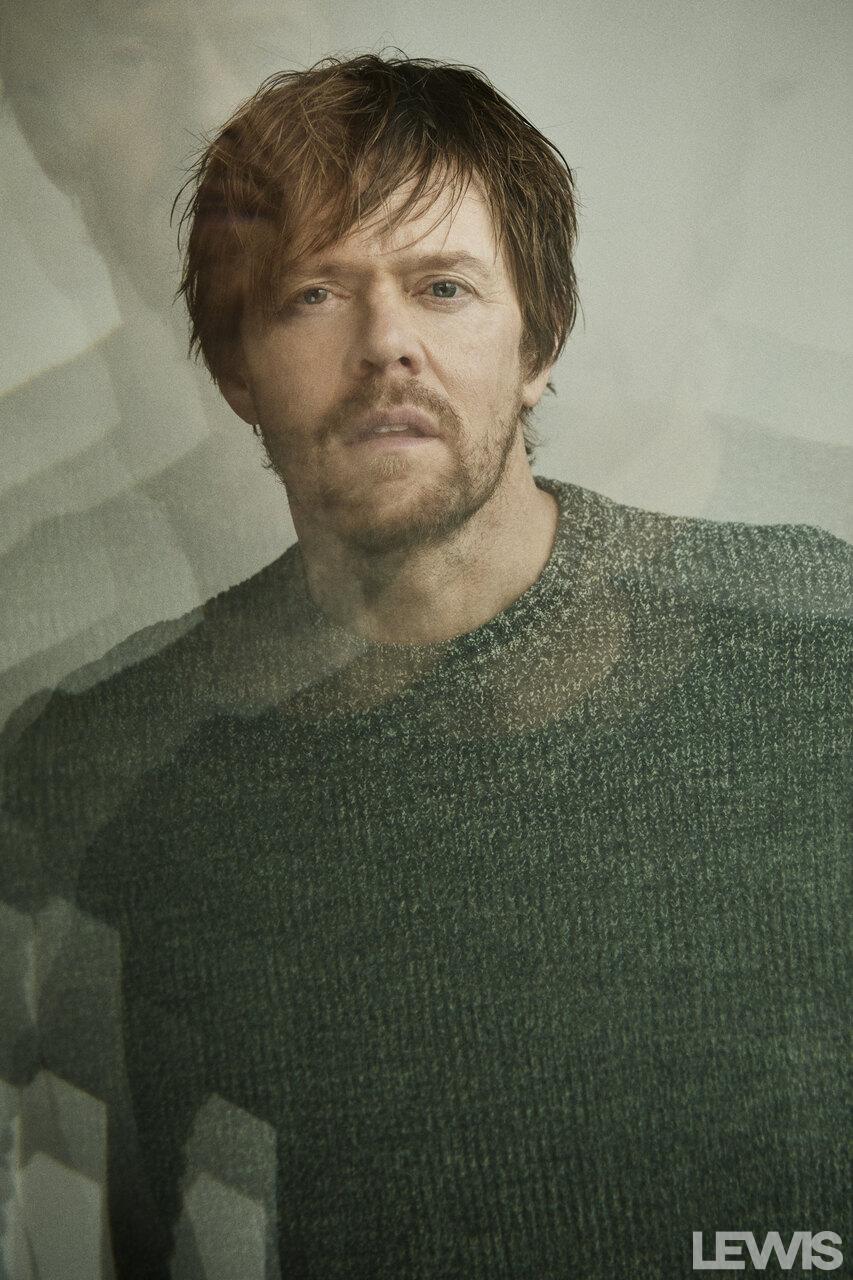
3. You’ve played such a wide range of characters, from the lovable Colin in Love Actually to the ambitious Tom Parker in Sanditon. Do you have a particular role that’s been most meaningful to you?
I’m going to crack out a serious acting trope here, so I apologise in advance. They’re all meaningful to me, because they’re all part of me and I’ve invested in them. My first outcome is to recognise their flaws and then try to make those flaws relatable. Taking Colin and Tom for example. Obviously, Colin’s whole storyline is the payoff of him hitting the jackpot with the American girls. So, I was interested in making him an antihero, like, how can you make a man so unattractive and yet still want him to win?…And with Tom in Sanditon. I mean, he’s basically a sociopath. He throws his family under a bus, forcing his younger brother into an unhappy marriage to save his skin, and yet slavishly and almost lasciviously refuses to compromise his vision, his legacy. And yet, you still kind of care for him. There are others as well, for more personal reasons. The Four Feathers was my first big ‘Hollywood’ movie, and only 18 months beforehand I was working in a factory and hiding under my bed from the landlord because I couldn’t pay the rent. And I love stunts and physical comedy. So anything involving some peril, a new skill or scariness always gets me excited.
4. In Charlotte and Theodore, you tackled themes of cancel culture, gender politics, and power dynamics. What drew you to this play, and how did it challenge you as a performer?
I’d done Ryan Craig’s (who wrote Charlotte and Theodore) first play in London back in 1998, when I was just starting out. I’ve always loved his writing as he’s not scared to expose himself to criticism by avoiding contentious topics. And I love being a conduit for that. It’s not that I necessarily agree with the character’s standpoints or righteousness as he feels he’s being overlooked in this new world, but again I love trying to make his flaws relatable. Plus, the play was a two-hander, which is an entirely exposing form of theatre…two hours, two people, no interval and you don’t leave the stage. When the other person stops talking, you start, there’s absolutely no hiding place. It’s easy to get a bit flabby when you’re protected by the membrane of TV and film… theatre is gigging live, and it sharpens you up again.
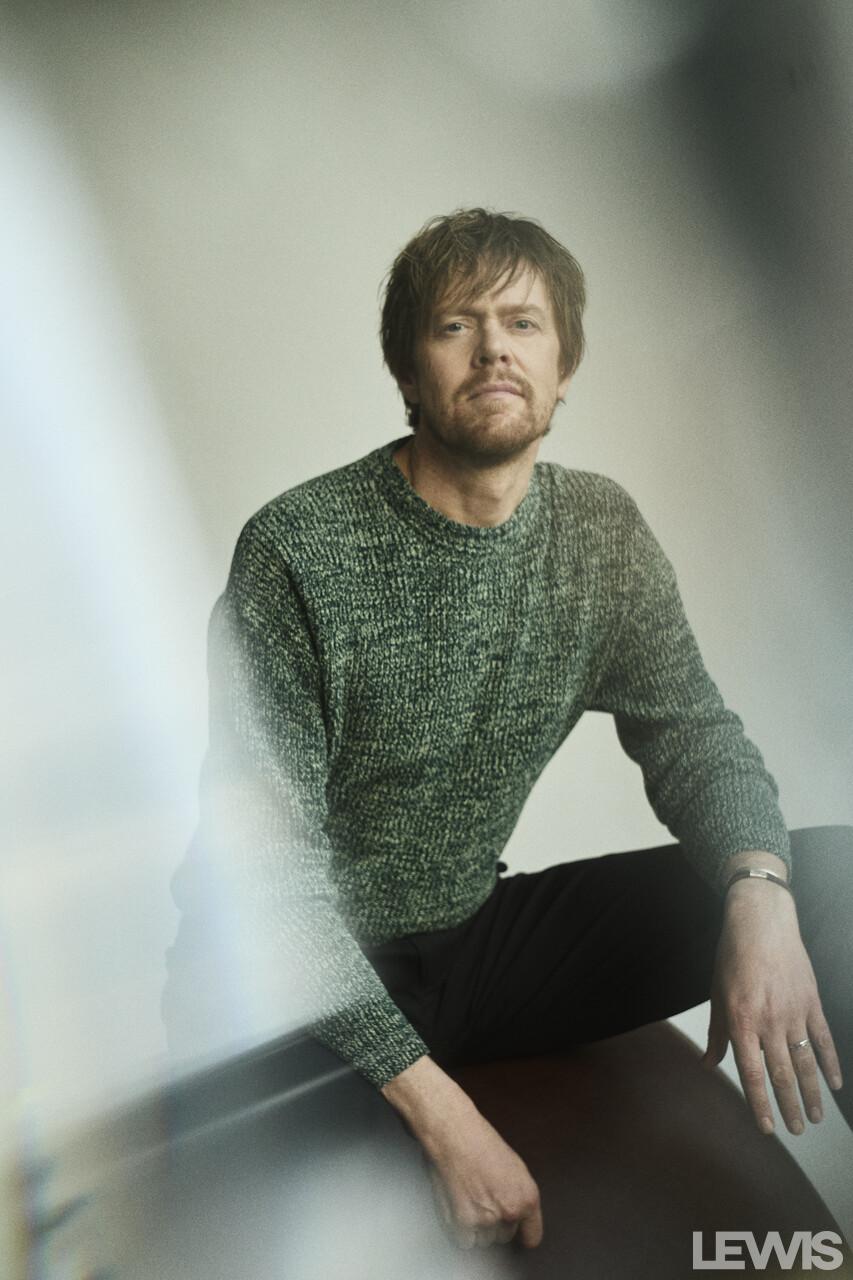
5. You’ve worked extensively in both theatre and film/TV. Do you approach stage acting differently than screen acting, and do you have a preference?
I’ve always rather glibly said that I prefer whichever one I’m not doing at the time! It’s a joke of course, but they both have their challenges. I love the process of being in a rehearsal room for a play. It’s a safe space where you play and discuss and drill down into the minutiae of a character to get it ready for live performance. With filming you build a character far more slowly, keeping an eye on the arc over many weeks and months. I guess also that they both involve conserving energy. Filming is getting up at 5.30am, working until 7pm and then eating and getting enough rest to do that for anything up to 6 months. Theatre is all about building enough energy through the day for an evening performance, and then not getting too carried away with enjoying the nighttime after the show…Because the older I get the earlier I’m up!
6. Love Actually remains a cultural phenomenon two decades later. Looking back, what are your fondest memories from filming, and did you ever expect Colin Frissell to become such an iconic character?
I can’t speak for anyone else in the film, but the fact there were so many storylines meant that each of us only had about 15 days of filming for the whole film. So, in reality it felt quite, well…short! There was only a couple of days where we were filming the airport scenes at the end of the film when everyone was in at the same time, and I have to say I’ve never seen so many trailers in one place before or since. It was like a maze! On more than one occasion I got completely lost trying to locate my own… Of course, you always hope your characters resonate with people, but Love Actually was and remains such a worldwide phenomenon, one of those films that has almost become a staple of the Christmas holiday, and to have been a small part of that is something I’m forever thankful for.
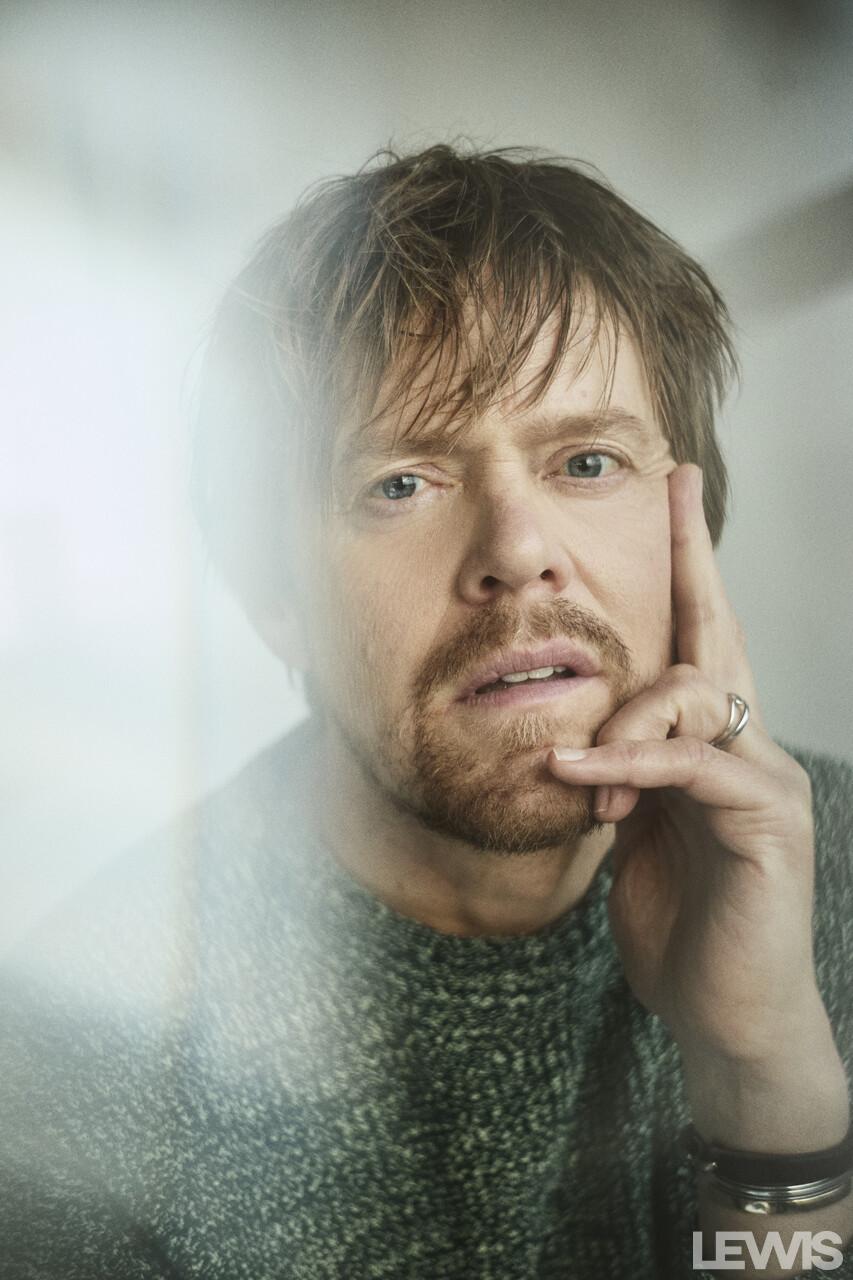
7. You’ve had an impressive career spanning over 20 years. What do you think has been the key to your longevity in the industry, and how has your approach to acting changed over time?
Haha… well it’s probably getting on for 30 years now to be honest!… And whilst I hope to God it continues, I feel incredibly lucky to have had such a good crack at it. And that really is the key I think. Luck. I was really lucky to have lots of small breaks when I was younger that lead to bigger and better things, like another rung on the ladder. Aside from luck, I suppose it’s pretty simple. Turn up on time, know your lines, stand on your mark and try and be a nice person that people enjoy working with. That, and don’t let the highs or the lows affect you too much, because ultimately they’re just different colours of the same jacket And I still absolutely love it! It’s a thrill and a joy to go to work on a film set every day, in different locations, and equally as thrilling in an abject terror kind of way to step on to a stage as well. I suppose that over the years, with more experience of cameras that I’ve become slightly more technical, but otherwise I don’t think my approach to the process has changed too much though.
8. With Beyond Paradise returning and a strong mix of stage and screen work under your belt, is there a particular type of role or project you’d love to take on next?
I think that the best part of the job is not knowing where you’re going next. I have no idea what role or project I’d love to do until the day you open a script, and within the first 10 pages say to yourself, ‘This is it! I know how to play this part, I hope to hell I get it!!…’ I suppose as I get a bit older, I’d love to expand into that a bit, and all the rich seam of characters that offers, but as long as I get to still have fun, travel a bit and hopefully create characters people enjoy I’ll be happy.
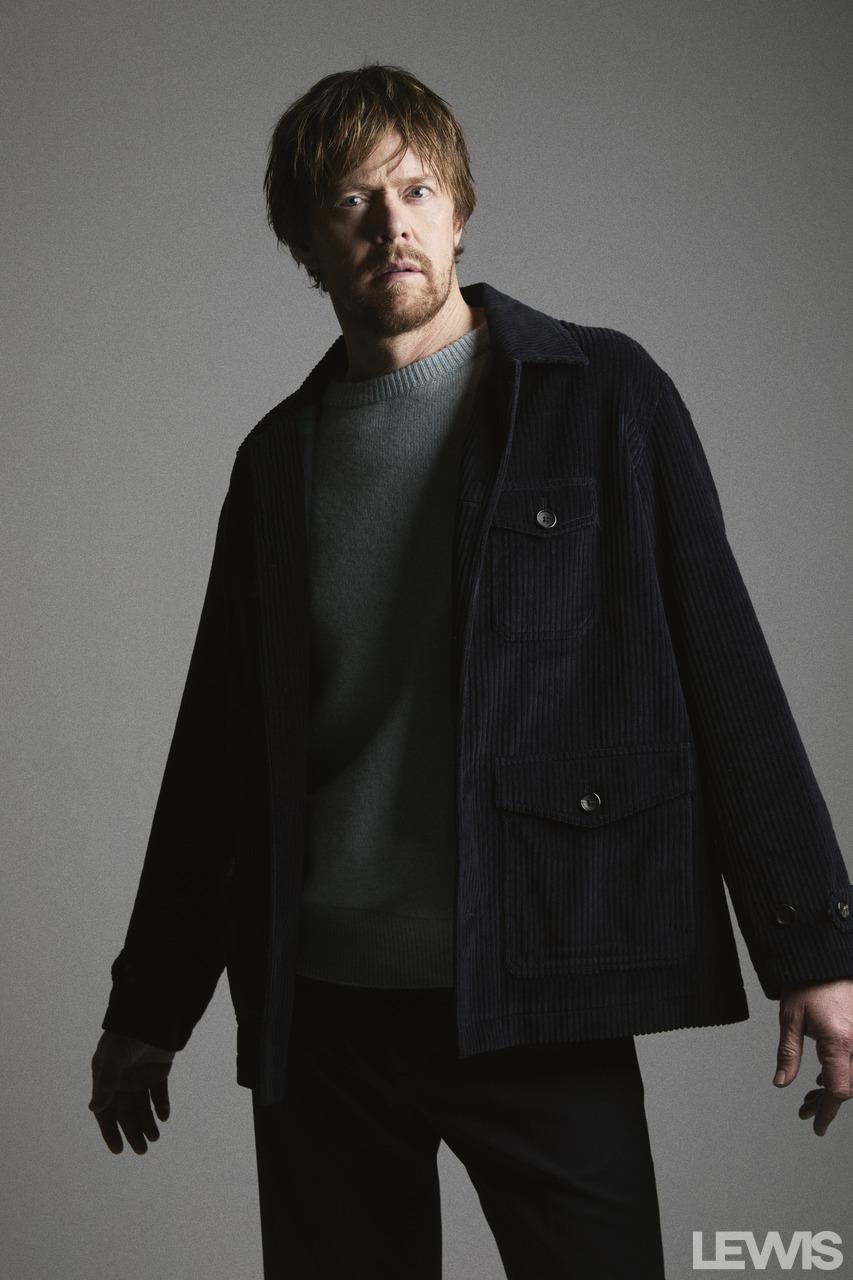
Photographer: David Reiss
Styling: Prue Fisher
Grooming: Jolanda Coetzer


